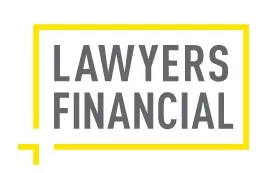Good news! The Canada Revenue Agency (CRA) has extended the deadline for filing your 2019 tax return. But if you're expecting a refund, now is the time to get organized and file ahead of the end-of-season rush.
Whether you file your own return or work with a tax professional, preparation is the key to maximizing your tax savings and receiving all the credits you are entitled to. This list contains some obvious and not-so-obvious details you can start to collect now1.
Tax filing deadlines for your 2019 return
| How are you filing? | Filing deadline | Last day to pay taxes without penalty |
| Individual | June 1, 2020 | September 1, 2020 |
| Self-employed and your spouse or common law partner | June 1, 2020 | September 1, 2020 |
| Corporations |
June 1, 2020 extended Applies to corporations that would otherwise have a filing due date after March 18 and before June 1, 2020. |
September 1, 2020 extended Applies to balances and instalments under Part 1 of the Income Tax Act due on or after March 18 and before September 1, 2020. |
About you
Beyond the basic information, here are a few things you'll need to locate.
- Last year's tax return and Notice of Assessment for you, your spouse or common law partner, and any dependents.
- Records of any tax instalments you paid throughout the year.
- A list of assets held outside of Canada.
TIP: You can access your NOA online by creating a MyCRA account and using the mobile app to view your documents.
About you and your family
Families can tap into a lot of tax credits and claim a large number of legitimate expenses. Be sure to account for everyone and everything.
- Tuition slips (T2202A) for yourself or from a child
- Childcare expense receipts
- Charitable donation receipts (from you as an individual)
- Political contribution receipts
- Medical receipts
Your investments
If your investments are consolidated with one investment firm or advisor, you should receive all of this information automatically. Ask your advisor if this information is available through an online portal or mailbox.
- RRSP contribution receipts
- TFSA contribution amount (available through MyCRA)
- Investment income tax slips (T5)
- Income from trusts (T3)
- Income from partnerships (T5013)
- Capital gains and losses summary (T5008 or investment statements)
- Receipts for investment advice
- Receipts for interest paid on investment loans
The money you make
Depending on your age and your role in the firm, you may be receiving income from a number of sources. Give yourself enough time to track down details of every source.
- Employment income (T4)
- Employee profit sharing (T4PS)
- Employment Insurance slip (T4E)
- Pension, retirement and annuities income slips (T4A)
- Registered plan income (T4RSP & T4RIF) slips
- Dividends from your incorporated practice
- Bonuses
- Old Age Security (T4A-OAS)
- CPP (T4A(P)) slips
Considerations for all lawyers
As a Lawyer, you may be entitled to deductions related to personal and professional expenses. If in doubt, consult a tax expert or ask your firm's payroll provider for advice.
- Professional and union dues
- Moving expenses if you relocated in 2019
- Home office expenses (includes a portion of heat, hydro, property tax, etc.)
- Mileage (tracked in a log book)
- Out-of-pocket office essentials (computer, printer, supplies, etc.)
Footnote
1. For information purposes only. Tax-filers are responsible for determining the information required for filing their tax return.
Originally published 8 May, 2020
The content of this article is intended to provide a general guide to the subject matter. Specialist advice should be sought about your specific circumstances.

